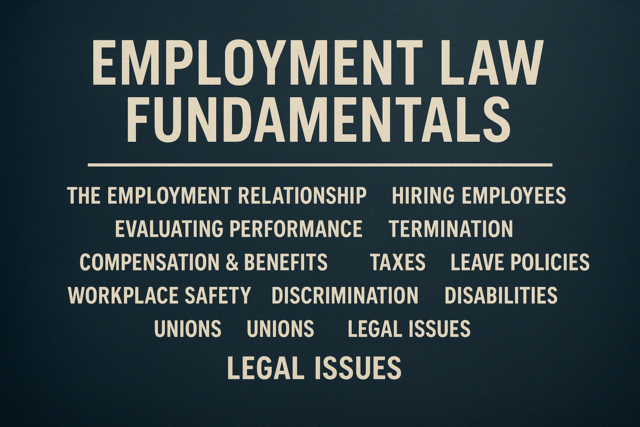Corporate or business compliance is defined as an organization's ability to operate within established guidelines, following specific rules, laws, and legislation. Different industries require different definitions of compliance, and may range from privacy issues to financial regulations.
Within the definition of law, compliance refers to behavior and standards that offer parameters and guidelines for the structuring and running of anything from a small business, to a multilevel global corporation. Environment, safety, and finances are among the topics covered under a blanket of corporate compliance regulations.
What Is Corporate Compliance?
Business ethics and compliance, while desiring the same results, employ several different approaches. Ethics is considered to be more of a "value" or "moral" standard of behavior, while compliance relies on laws and regulations for conducting daily business operations. Corporate compliance focuses on obeying laws and regulations, and as such includes disciplinary procedures for violators, as well as fines.
Many organizations and businesses within the United States take their guidelines from the United States Sentencing Guidelines Organization to define their approach to compliance in a wide range of industries. Most employees are more than aware that if they break the law, they will be punished. However, creative individuals who are not that concerned with morality or ethics in the workplace often will look for loopholes or rules that are not specifically defined to justify less than exemplary behavior.
Because of this loophole approach, businesses should incorporate both moral values and legal compliance components in their policies and procedures manuals. Management wants to trust their employees just as much employees want to trust their management. Doing so requires not merely focusing on the fines and penalties that will result from doing something wrong, but on the benefits to doing things right.
As mentioned in the introduction to this article, different businesses require different approaches to compliance. However, legal compliance in every industry, from health care to national defense, is vital to the success of any compliance program. Remember that a compliance policy differs from an ethics program, and as such, focuses on the laws or regulations involved in that industry. This may include areas related to billing, contracts, and training.
Compliance has become increasingly important in corporate management and has even required the development of a new job title, the Chief Compliance Officer.
Corporate compliance has initiated legislation in of a number of fields, including the United States Health Insurance Portability and Accountability Act (HIPAA) of 1996, the Sarbanes-Oxley Act of 2002, and the Can Spam Act of 2003, to name a few. HIPAA was designed to protect patient confidentiality and standardize information and records, in the health care industry. Because of the dramatic increase in regulations, legislation, and internal policies, businesses are ramping up efforts to not only define the necessity of corporate compliance, but detail aspects that are included in hundreds of fields.
The Sarbanes-Oxley Act was initiated after the Enron and WorldCom scandals within the finance industry. They were basically designed to protect shareholders from fraudulent practices and accounting errors. Its main goal is to prevent corporate fraud. The Sarbanes-Oxley Act has increased limitations by which companies can either extend credit or make loans to their executives. The legislation contains many new rules and regulations, including some that increase government responsibility in prosecuting cases of fraud.
The Sarbanes-Oxley Act also now makes it illegal to destroy documents or to falsify records. Financial and legal industries are required to maintain records and provide protection for "whistleblowers." Unfortunately, in order to comply with the Sarbanes-Oxley Act, small businesses spend much more money than large corporations and institutions to achieve and maintain guidelines.
Laws and Regulations
The United States Department of Labor's Office of Compliance Assistance offers extensive guidelines for a multitude of businesses and corporations. As such, the Department of Labor provides open and easy access to employers, employees, and retirees, as well as to supply information on complying with federal employment laws to those seeking jobs within the field. This area of compliance helps to protect health benefits, employment rights, and the health and safety of all employees.
The Department of Labor offers compliance resources in fields that include, but are not limited to:
- Wages
- Health benefits
- Retirement
- Equal opportunity
- Safety in the workplace
- Unions
- Layoffs
- Termination
Small businesses and large corporations alike are finding it increasingly difficult and time-consuming to keep up with and meet all the rules and regulations that are being developed to maintain and understand compliance issues in any specific industry. Small business owners and CEOs must understand recent laws that include but are not limited to the:
- Occupational Safety and Health Act (OSHA)
- Family and Medical Leave Act (FMLA)
- Fair Labor Standards Act (FLSA)
The Department of Labor enforces nearly 200 federal laws when it comes to compliance, and serves millions of employers and employees throughout the United States. The Department of Labor also utilizes compliance regulations regarding mine safety and health, migrant workers, transportation, wage garnishment, employee protection, uniformed services employment, and re-employment rights, as well as employee polygraph protection. Of , this is just the tip of the iceberg, but serves to illustrate how thoroughly rules and regulations have become an essential part of the workforce.
From workers compensation, to employee benefits, to government financial aid, the Department of Labor is the first place any new business owner should research when it comes to rules and regulations, guidelines and compliance requirements in any industry or field.
A corporation may include a one or two-person home-based business, or an organization that employs thousands of workers. Compliance and responsibilities to workers, stockholders, and managerial staff are an integral part of the structure of any business.
For example, if you're in the hospital, your patient chart contains more than just medical information about your illness or injury. It includes your Social Security number, your private contact information, insurance provider, family history, and many other kinds of private information. HIPAA guidelines prevent the dissemination of any of your personal information to outside sources without your express permission.
Such guidelines are not merely relegated to your medical record, but every to aspect of your care, even your presence in the facility. For example, if two nurses are discussing your case at the nurse's station, or anywhere else where someone not related to your care may overhear such information, those nurses may be penalized for not adhering to HIPAA standards and guidelines in regard to patient privacy regulations.
In another scenario, let's say you work at a paint factory. The Occupational Safety and Health Act requires that your boss adhere to regulations and standards designed by the US Occupational Safety and Health Administration. Therefore, if an employee finds that containers of chemicals or other hazardous materials are being used or stored where they may affect the health and safety of employees, he or she has the right to request a workplace inspection or investigation.
Creating a Compliance Policy
When it comes to creating a compliance strategy, businesses should take the time to research software and other technologies that may help them identify issues or dangers within their industry. The first step to design any compliance policy is to make sure the management officials understand the objectives, as well as the negative impact that results when such compliance is ignored.
Conclusion
Corporate compliance offers the opportunity for managers and business owners to run a successful business. Addressing such issues as wages, hours, safety, and health benefits, compliance ensures that employees are treated fairly and that employers are protected.
Labor laws are designed as a protection against unfair work practices, but go hand in hand with values and morals in the workplace. One without the other is rarely successful, and so business owners and CEOs are encouraged to employ the use of both value ethics and corporation compliance in the running of any business.































